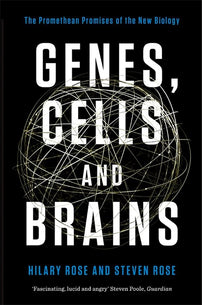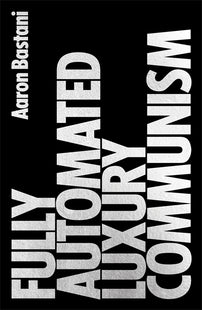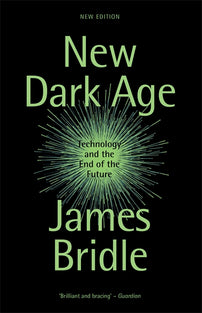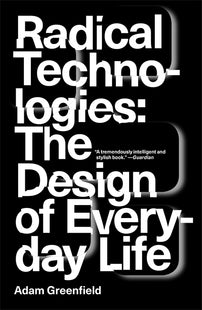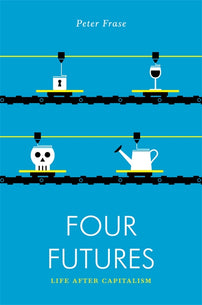Do biobanks serve the common good?
In response to the current COVID-19 crisis the UK Biobank, that contains half a million people’s anonymised health and genetic information, may be used to answer questions about coronavirus. Becca Muir asks, are the biopolitics of these databases being ignored?

Biobanks power the production of modern biomedical knowledge, and when doing so, they barely leave a stone unturned. By combing through the seemingly endless resource, researchers can pull out a massive variety of information about the human condition, from the size of your heart to how often you have deep conversations with your friends.
The triumph is that with this unparalleled statistical power, biobanks can potentially find unexpected causes for serious conditions, such as cancer and mental illness.
Collecting all this data is expensive. The UK Biobank is funded by the public, costing at least a hundred million pounds.
But alternative, private uses of biobanks have been hugely successful without costing very much to their owners. Instead, they offer considerable potential for creating wealth. For example, 23AndMe, the DNA-home testing company that collects millions of saliva samples from across the world, is estimated to be worth $2.5 billion dollars.
Now, the UK Biobank, 23AndMe, and other specifically-created biobanks are becoming central players in the struggle to understand and eradicate COVID-19. The hope is that these datasets can be used to identify why some people are more vulnerable to coronavirus compared to others. COVID-19 GP and hospital data are being synthesised into the UK biobank, while 23andMe are asking participants about their COVID-19 experiences first-hand.
But despite their great promise, the power and reach of biobank enterprises has attracted concerns over consent, data privacy and the surveillance of populations. Bioethicists and scientists worry that new forms of social control and prejudice could be created in the name of research. Some even question the utility of biobanks all together, and warn that individualised predictive medicine is part of a drive towards the commodification of the human body.
Volunteers donate their health and genetic information with the assurance that the research is in the public’s best interests. But one problem is that the type of questions being asked, and the way the data is collected, can reproduce oppressive structures and social prejudices. These studies often hide under a cloak of scientific neutrality. For example, some studies have linked biobank participant’s genetic makeup with their income, and looked for associations between children’s’ DNA and their GCSE results or IQ test scores. This work has deeply concerned those who believe that socioeconomic inequalities are not due to differences in DNA.
Additionally, due to data collection biases, biobanks do not cater well to people without European ancestry. This means that if genetic testing or personalised medicine for COVID-19 was developed based on new datasets, large swathes of people from marginalised backgrounds who are vulnerable to COVID-19 might not benefit.
Attempts to diversify the data have hit ethical quandaries which scientists are not necessarily trained to handle with nuance. Some researchers want to convince cautious Native American communities to donate their DNA, while Africa-based researchers have had to issue guidelines to stop foreign researchers ‘helicoptering’ into a community and leaving with samples.
Biobanks can also contain complex, sometimes problematic assumptions, such as the idea that there is a direct causative pathway from genetics to disease. The ethos is that by identifying genes, medicines personalised to the individual can be created. In Genes, Cells and Brains, Steven and Hilary Rose outline how biobanks have led the construction of ‘personal risk scores’ made up of all the tiny DNA changes that contribute towards a disease or disorder. They ask, if each genetic difference only contributes a small amount of risk to a disease, can useful conclusions for personalised medicine be drawn?
Modern science is full of these ‘promethean promises’ they say, where money is funnelled into finding molecular solutions to public health problems. Biobanks have resulted in a ‘neoliberal self’, where patients are consumers who can be sold personal pharmacological solutions. Yet the complexity of human biology has led to a reductionism which renders many of these biobank studies useless for producing drug targets, they argue.
Socially-conscious scientists such as Richard Lewontin have warned for years about how research can legitimatise the structures of inequality and prejudice in our society by putting a scientific gloss on them. As a result, a narrow focus on biomedical or genetic explanations could make the social factors impacting how COVID-19 affects marginalised people seem less important. It could also be used to make some ideas seem more ‘natural’ than others – such as prioritising the healthy before people with underlying health conditions. The Roses have also cautioned that this narrative encourages us to see health conditions as a problem with the individual’s biology - diverting attention and resources away from the complex social and economic explanations of disease.
More disturbingly, new forms of social control are sprouting up from these population studies. Andrea Boggio, at Bryant University, Rhode Island, studies the legal challenges of biobanks. He says that social discrimination is a real potential ethical harm if certain people are told that they are less at risk based on their genetic profiles. This is particularly true if governments decide to act on this information with policy. He questions whether people at lower risk should be allowed to break social distancing protocols, or be able to work and travel to a greater extent than the non-immune population. “This idea of immunity licenses seems ethically dangerous if fairness is accounted for”, he says.
In some countries, people who are vulnerable to COVID-19 already have little protection against pressure to disclose their health status. As reported in OneZero, Nancy Kass at the Johns Hopkins Berman Institute of Bioethics has warned that employers in the US could discriminate against people who are untested or not immune. She also cautions that people in precarious work may risk their lives exposing themselves to the virus in order to gain immunity.
Consent in these population studies is also a major issue - particularly when they are based on data from commercial biobanks. Approximately 8 million people paid 23AndMe to analyse their ancestry, with the understanding that their data could be repurposed for research. But in 2018, 23AndMe made a lucrative deal with pharmaceutical giant GSK, giving them exclusive access to 23AndMe’s database.
When people sign up to 23AndMe, do they fully understand that they are relinquishing control of their information, which can be used or sold for profit in the time of a pandemic? When people tick a box, did they ever imagine that one day, a virus would transform life as we know it at a dizzying speed, and we would all become confined to our homes until a vaccine was found?
Companies such as GSK maximise profitability by extending their exclusive rights to new drugs through patents, meaning no other company can make or sell that innovation for a minimum of 20 years, Global Justice Now point out. How will this affect fair access to COVID-19 drugs? If this scenario was laid out to the millions of people who took an at-home DNA test, would they still consent?
“It is difficult, if not impossible, to consent to something you don't know about”, says Tim Caulfield, Research Director of Health Law Institute at the University of Alberta. Most of the research suggests that the involvement of commercial interests heightens the desire for more control over personal data, he says.
Heather Widdows, Professor of Global Ethics and Deputy Pro-Vice-Chancellor at the University of Birmingham, was an advisor on the UK Biobank Ethics and Governance Council from 2006-2013, and she expresses some similar views. She says that “consent could never be informed, as one can’t give informed consent for future unknown work”.
As warned by the Nuffield Council of Bioethics in late April, simply “following the science is not politically or morally neutral”. To speed up science, private health information on COVID-19 has been added to the UK Biobank and hailed as positive progress without question. The UK Biobank has also streamlined the process so any scientist already approved can look at this new COVID-19 data, and anyone who wants access will be quickly reviewed.
But why are the people who donate their information not being actively consulted? And who is checking that this research will benefit us all?
[book-strip index="1" style="display"]Becca Muir is a genetics researcher and science journalist in London
